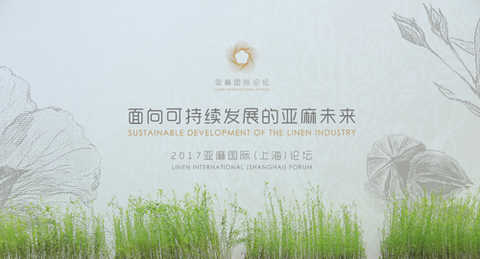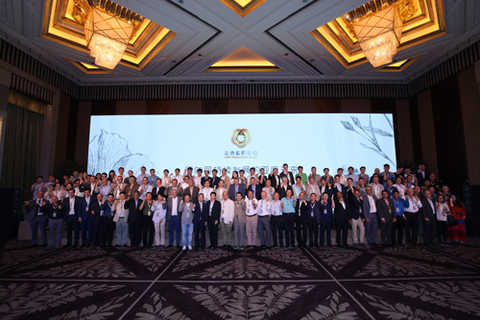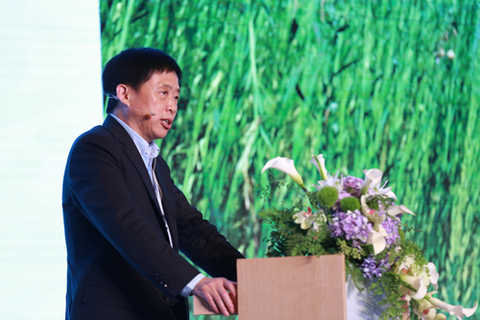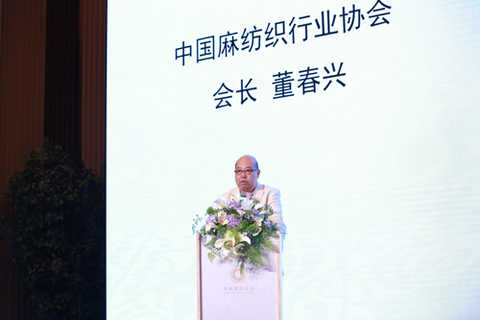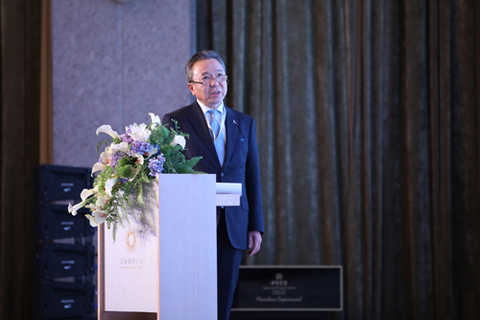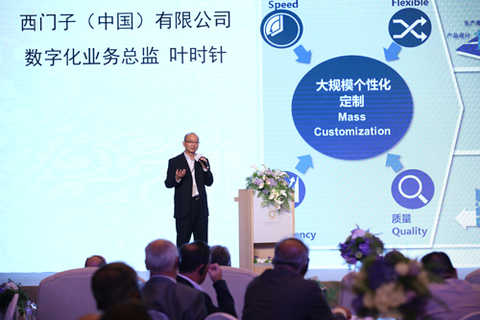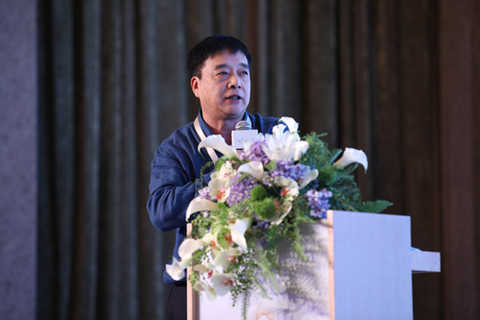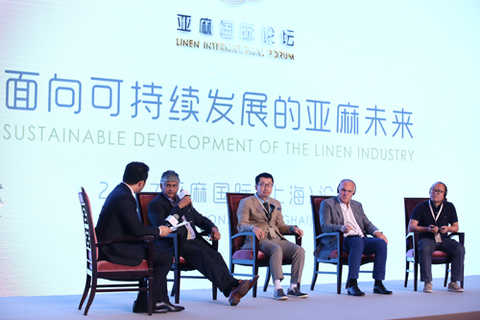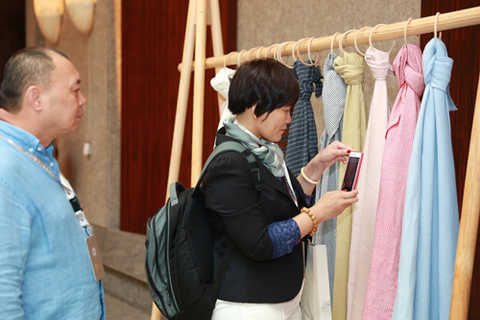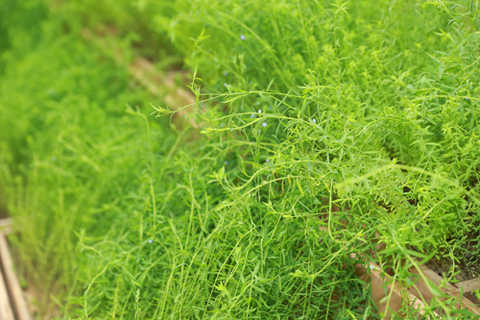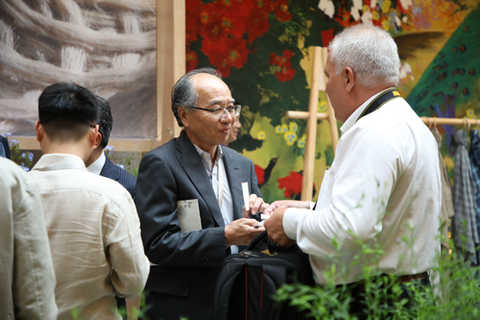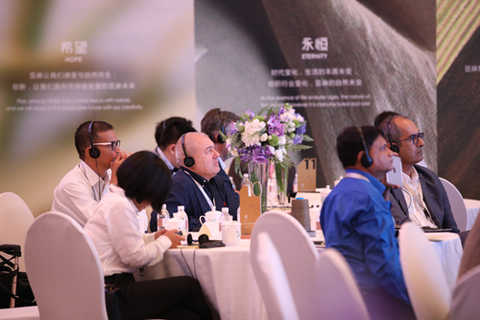2017 Linen International (Shanghai) Forum held in Shanghai On June 24th, the 2017 International Linen (Shanghai) Forum hosted by Jinda Holdings Co., Ltd. was held at the Shanghai Xijiao Hotel Conference Center. The theme of this forum is “The Future of Flax for Sustainable Developmentâ€. Leaders from China Hemp Textile Industry Association, Japan Hemp Textile Association, relevant government agencies, and China and Belgium, France, Germany, India, Italy, Japan, Lithuania, Portugal, South Korea, Turkey, the United States and other 15 countries and regions More than 150 guests from the company attended the meeting and exchanged and discussed the development trend of the international linen market. Asia becomes the global consumption of linen Today, China is the world's second largest economy, Japan is one of the world's most developed countries, and India has become one of the world's major economies. In recent years, China, Japan, and Indian flax consumption have proved that Asia is already one of the most important regions for global flax consumption. In the future, the Asian market will become a growth pole for global flax consumption. Ren Weiming, Chairman of the Board of Directors of Jinda Holdings Co., Ltd. Ren Weiming, Chairman of the Board of Directors of Jinda Holdings Co., Ltd. said in his speech: "This forum is held in the light of the changes in the layout of the world's flax production. It is well known that China's flax industry has developed the fastest in the fifteen years after China's accession to the WTO. In the fifteen years. In globalization, the marketization of resource allocation, and the shift in production costs, the western flax industry has basically shifted to Asian countries such as China and India, basically completing a round of westward shift, while the Chinese flax industry has completed a round of north. Ma Nan, the Yangtze River Delta region with the center of Shanghai and the Pearl River Delta region has become the world's most important flax production center. Second, in view of the changes in the global flax consumer market, we have seen continued growth in traditional flax consumer markets such as Europe and the United States. Under the situation of maintaining a basically steady growth, the formation of the Asian flax consumer market is even more unexpected. Third, in view of the status and role of the Chinese flax industry and the flax market, China’s annual import of European hemp in the past five years is around 110,000 tons. About 80% of Europe is made into hemp and two are sold to China. Chinese linen yarn, linen fabric and linen The trade volume of products has accounted for more than 60% of the total volume of global trade, and has become a big country in the production of flax. Today, our world's outstanding linen enterprises and flax people gather together, both from the charm of linen, and from the love of linen, feel We work together to advance the confidence." Dong Chunxing, President of China Hemp Textile Industry Association “Jinda has maintained a rapid growth rate in recent years and has become the world's largest linen spinning enterprise. Its export volume accounts for one-third of China's linen yarn exports and has a very important position in the industry. The company's product quality has always maintained a leading level, and has achieved good results in management and ecological textile construction." Dong Chunxing, president of China Hemp Textile Industry Association, also stressed after the recognition of Jinda's development, "Future, industry Development cannot exceed the carrying capacity of resources and the yellow environment. Global enterprises must work together to carry out sustainable development. Enterprises should not only pay attention to the products themselves, but also pay attention to the sustainable development of the whole industry chain, from the cultivation, processing and consumption of raw materials. To recycle, we must establish a complete system, and only then can we walk more solidly. The holding of this forum is not only an improvement of the industry, but also a contribution to society. I hope that the participating enterprises will actively participate in it. Create a better tomorrow." President of the Japan Hemp Textile Association, Xiangshan Xue Xiangshan Xue, president of the Japan Mafang Association, said: "The Chinese hemp industry is constantly developing, not only at home but also at the international level. China's flax production accounts for more than half of the world, and Japan is very small compared to this. In the five years of development, Japanese flax imports have continued to grow, almost all from China. In the future, we will continue to promote the sustainable development of flax with other countries and regions." Actively form a new ecosystem of supply chain At present, China is already a big country in the world of flax production and consumption, and it is imperative for the global flax industry to achieve sustainable development. At present, the flax industry is also facing the challenges and opportunities of globalization, big data, e-commerce, and the world is facing a transition from a consumption-oriented to a sustainable society. In this context, this forum has given it meaning, expressing the confidence and attitude of the participating enterprises and individuals in the development of sustainable development from a certain level, responding to the challenges and opportunities we face with actions, and expressing Create a new type of ecological relationship appeal for enterprises in the linen industry. When talking about the theme of this forum, Ren Weiming said: "It is foreseeable that the future linen industry will form a new supply chain ecosystem: First, the symbiotic advantage, the realization of all links in the linen ecosystem, the division of labor and cooperation of members, organically united into one Overall, synergy creates value for users and maximizes the overall value of the linen ecosystem. The core of symbiosis is to create a value platform that can be used and shared by various partners in the linen ecosystem to systematically organize the value of flax. The maximization of the two. The second is the mutual advantage. On the symbiosis, the members of the ecosystem in the flax ecosystem also exhibit an interdependence. The growth and profit of each member are in line with the healthy development of other members and the overall ecosystem. Contact. The value created by the members will be shared throughout the ecosystem. The third is the regenerative advantage. The flax ecosystem can expand the industry's limited development boundaries. When it comes to maturity or transition, by refocusing on the most promising areas, Transfer resources to new areas, establish a more complete and cooperative mode of cooperation, and seek healthier The potential new development opportunities. As one of the world's largest gold linen business, we have to stand in sustainable development, has been a model for the world to stand in the industry in sustainable development. " The market is huge, letting knowledge and experience flow In the past five years, with the economic development, the improvement of living standards and the change of consumption concept, flax consumption has increased significantly. We can see the clues from the linen products of a number of domestic brands such as Uniqlo, MUJI, Haishu House, Jiangnan Cloth, and also see the hope from the extensiveness of the online linen store. From Baidu big data sampling analysis, from 2011 to 2015, domestic consumers' attention to linen increased by about 20%. China has become one of the most important countries for flax consumption, and has great market potential in the future. In the keynote session, special guests shared their experiences and experiences in the continuous development of their respective fields. Pan Shenhong and Li Jianjun from TEA Textiles Interpret the current understanding of sustainable development from different perspectives of fashion industry and textile product value development and innovation. Ye Shizhen, Director of Digital Business, East China Region, Siemens (China) Co., Ltd. Ye Shizhen, Director of Digitization Business of East China Region of Siemens (China) Co., Ltd., shared the achievements of Jinda in the field of environmental protection and energy conservation with "We are working together on the road of digitization", and concluded that large-scale personalized customization is the development of enterprises. trend. Other European speakers also exchanged ideas on the production of flax, the latest combing technology of pre-spinning, the rapid processing of eco-friends and the environmental protection of sustainable development, and effectively promoted the development of the flax industry. †Shen Yueming, General Manager of Jinda Holdings Co., Ltd. Shen Yueming, general manager of Jinda Holdings Co., Ltd., at the meeting, sorted out the road to sustainable development of Jinda in recent years. The company introduces advanced textile equipment from Germany, France, Italy and other countries. The technical equipment level is in the leading position in the same industry in the country, and the energy management system designed in cooperation with Siemens has comprehensively improved the company's information management level and production operation capability. Through the collection, analysis and processing of energy data, we can manage and optimize energy equipment, energy performance, energy planning, energy balance, energy KPI assessment, etc., and improve energy efficiency. It is worth mentioning that on April 18th, the 2017 China Hemp Textile Industry Association's 7th Board of Directors (Enlargement) and the 2nd China Ma Textile Top Ten Influential Brand Awarding Ceremony were held. The KINGDOM brand as Jinda One of the major brands holding linen yarn was rated as the top ten influential brands of the second China Ma Textile. KINGDOM is committed to creating a “dream factory†of linen, which is the origin of the brand and the goal of the brand. Today, with the rapid development of chemical fiber products, people affected by the return to the true sense of the original are more popular with natural fiber products. KINGDOM has created a market for natural, green and sustainable yarn brands. “Jinda will continue to deepen the domestic market and promote the application of linen fabrics with the huge population of China and the geographical advantages of taking root in China, and continue to release the domestic market potential. In the overseas market, the Group will continue to strengthen the textile and consumption areas with linen yarns. The exchanges and interactions will strengthen the relationship between the Group and its customers through the holding of exchange meetings, participation in product and technology exhibitions, enhance the brand image, further strengthen the Group's industry leading position, and ensure the parallel growth of the domestic market and overseas market business." Ren Weiming The future development is full of confidence. "In the same industry, enterprises have common language and the same ideas. I believe that the full exchange of this forum will lay a good foundation for future deep communication and comprehensive interaction, and provide positive energy for development." [About Jinda] Founded in 1999, Jinda is a company with a total scale of 105,000 spindles, an annual output of 17,000 tons of linen yarn and more than 3,000 employees. It is currently one of the largest manufacturers of linen yarns in the world. The company's linen yarn accounts for 1/3 of the country's pure linen yarn exports, ranking first in China since 2004. China's linen yarns exported to Japan, South Korea, Italy and other high-end markets, Jinda's linen yarns account for about 50%. Jinda Holdings was listed on the Main Board of the Hong Kong Stock Exchange on December 12, 2006. "Based on comprehensive utilization of resources, vigorously develop circular economy and build a green linen yarn brand" is an important strategy for Jinda's sustainable development. Close to the "least resources" and "minimum emissions", Jinda has comprehensively carried out energy conservation and emission reduction work with the theme of "energy saving, consumption reduction, pollution reduction and efficiency improvement", and actively seeks the transformation of economic growth mode. We will take a new road of economical, green, environmentally friendly and low-carbon industrialization to achieve a harmonious and win-win economic, social and environmental benefits. The company not only passed the ISO9000 quality system and ISO14000 environmental system certification, but also passed the green eco-textile testing and certification Oeko-Tex Standard 100 and IMO organic flax fiber certification. The company cooperates with Siemens in energy conservation, environmental protection and energy management to establish Jinda as a green and digital factory. Jinda Digital Chemical Factory utilizes digital technology such as Manufacturing Execution System (MES) and Equipment Maintenance Improvement Project (MIP) to maximize production management efficiency. Editor in charge: null It is the nature of the baby to be lively and active. The baby spends most of the time playing and playing, so the dress should be loose and natural casual clothes. In addition, the baby's body is developing, wearing loose and casual clothes is conducive to the development of the body, but also gives people a comfortable and casual feeling. Boys Down Jacket,Kid'S Down Coat,Down Puffer Jacket,Winter Puffer Jacket Dongguan Yumuran Garment Co.Ltd , https://www.onemovingkidsjacket.com